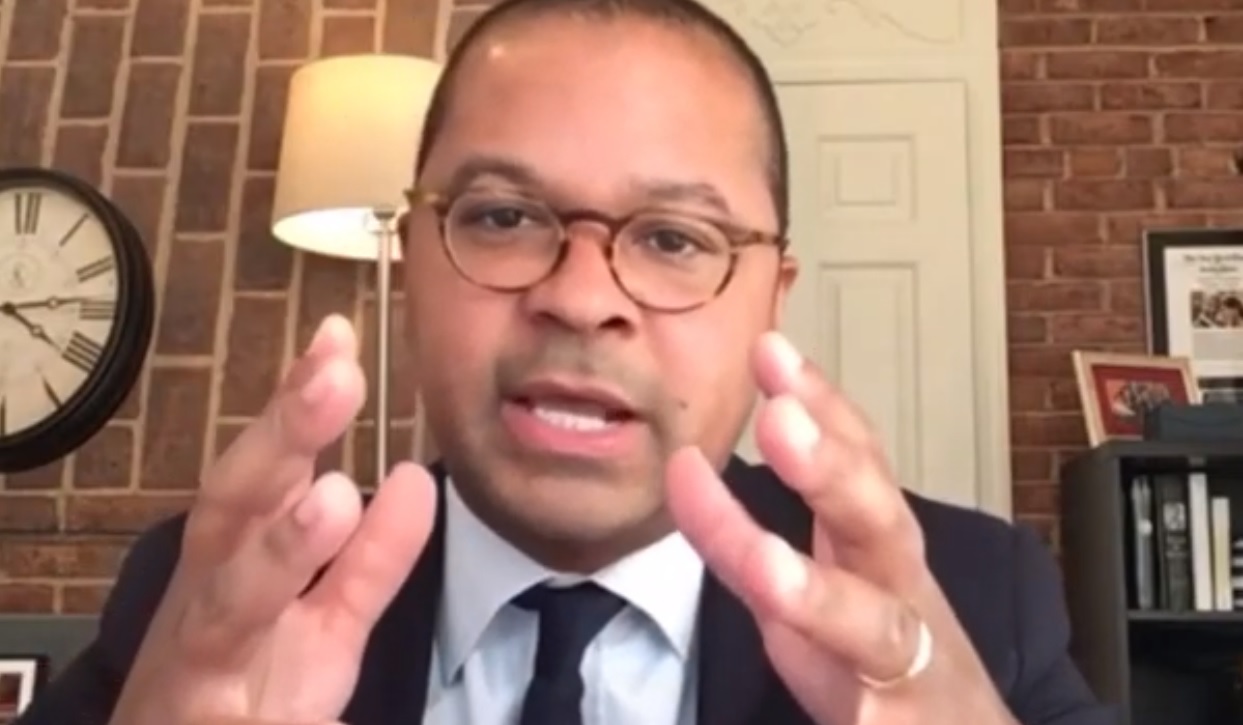FCC's Starks: Too Many Remain on Wrong Side of Digital Divide
Said it is past time for tech sector equity

The smarter way to stay on top of the streaming and OTT industry. Sign up below.
You are now subscribed
Your newsletter sign-up was successful
This country has not done enough to close the digital divide, rural and urban, and must do better as a matter of basic fairness. That was the message from FCC commissioner Geoffrey Starks in his keynote address Thursday (Nov. 19) to the Rainbow Push Coalition and Citizenship Education Fund Media and Telecommunications Symposium.
As with most events in a time of COVID-19 the usually in-person D.C. equity summit was held virtually.
He began his remote keynote with a shout-out to Rainbow Push and other groups.
"[T]he fight for justice is neither a fleeting moment nor a state of convenience," he said. "It is instead a consistent, ever-evolving movement built on the personal and professional sacrifices made by civil rights leaders who advocate for those who have been ignored or forgotten."
Related: Starks Is in Search of Digital Equity
Rainbow Push founder, Rev. Jesse Jackson, has long argued that ownership and access to communications outlets is a civil right.
"Our failure to create inclusive policies that close the digital divide has done serious harm to the Americans who were already struggling to put food on their tables prior to the pandemic," Starks said, arguing that the digital divide has morphed during the pandemic into a "monstrous COVID-19 divide."
The smarter way to stay on top of the streaming and OTT industry. Sign up below.
While much of the digital divide focus has been on rural areas, he said the pandemic has laid bare the truth that it is an urban divide as well. "[T]hree times as many households in urban areas remain unconnected as in rural areas," he said, with people of color representing a disproportionate number of those unconnected homes.
He said it is past time for the tech and telecom sectors to take account of equity issues, which are not far off distant concepts, but principles anchoring a shared collective future.
Starks said the digital divide and economic opportunity divide run parallel to each other. "Broadband is the vehicle that allows people to take control of their lives," he said. "Working family members should be able to set up their work stations from the safety [of] their homes" rather than hunting for free WiFi access. To have to do otherwise negatively impacts their personal dignity.
He also said the pandemic has been particularly hard on Black-owned businesses on the wrong side of that divide. He said that a whopping 41% of black-owned businesses have had to shutter, with many of those lacking the ability to offer their products or services online as an alternative.
Related: Clyburn Is a Voice for the voiceless
"Black-owned businesses are cornerstones of our neighborhoods and they need access to updated technology so they can serve our communities. Rebooting our economy means ensuring that Black businesses get connected," Starks said.
There is also a work-from-home divide.
"Less than one in five Black workers and roughly one in six Latinx workers can work from home, which means their work outside of the home puts them at greater risk of exposure to the virus," Starks told his audience. They need access to telehealth via "affordable, reliable broadband," he said, adding that connectivity would also help with mental health, particularly seniors, given the toll taken by increased social distancing.
Contributing editor John Eggerton has been an editor and/or writer on media regulation, legislation and policy for over four decades, including covering the FCC, FTC, Congress, the major media trade associations, and the federal courts. In addition to Multichannel News and Broadcasting + Cable, his work has appeared in Radio World, TV Technology, TV Fax, This Week in Consumer Electronics, Variety and the Encyclopedia Britannica.

